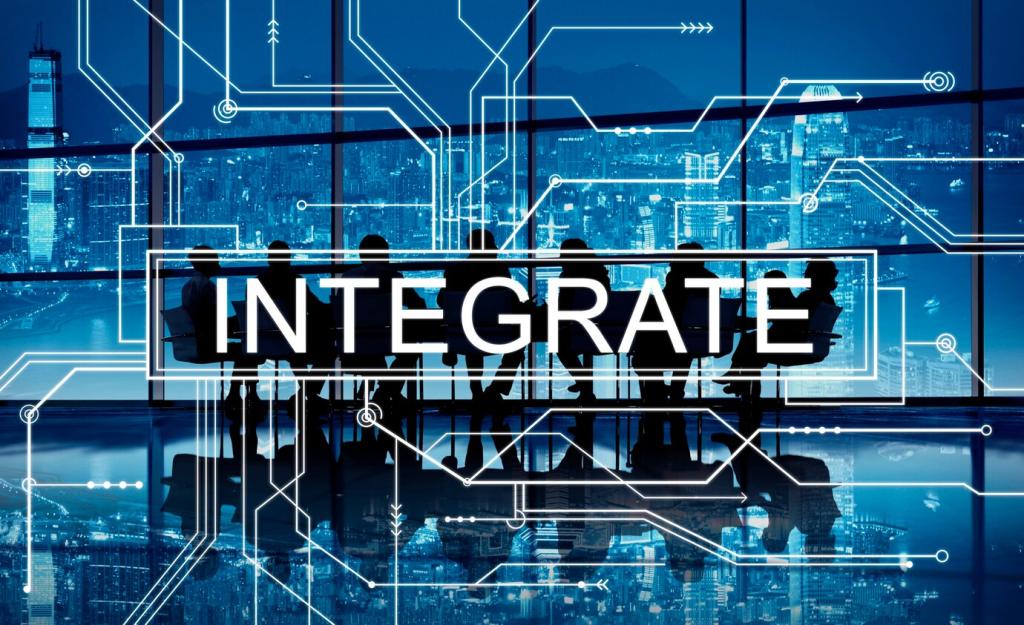Cybersecurity Innovations and Career Opportunities
Cybersecurity is at the forefront of digital transformation, safeguarding information systems in an era increasingly dependent on technology. As threats evolve and digital landscapes expand, innovations within cybersecurity continue to shape the industry, offering new methods to detect, prevent, and respond to cyberattacks. Concurrently, these advancements create a wealth of career opportunities for professionals eager to protect organizations from ever-changing online risks. This page explores critical innovations revolutionizing cybersecurity and the diverse careers emerging within the field.

Cutting-Edge Trends Shaping Cybersecurity
The Impact of Artificial Intelligence in Cyber Defense
Artificial Intelligence (AI) is revolutionizing cybersecurity through advanced threat detection and rapid response capabilities. AI-driven systems can analyze vast datasets to identify anomalies and potential threats far more quickly than traditional security methods. Machine learning models adapt over time, becoming more adept at recognizing new attack patterns and minimizing false positives. Furthermore, AI automates repetitive tasks such as log analysis and incident triage, freeing up human experts for higher-level strategic work. Despite concerns around adversarial attacks and the use of AI by cybercriminals, the benefits of AI-powered security are undeniable, laying the groundwork for smarter and more resilient defense infrastructures.
Zero Trust Architecture: Redefining Security Models
Zero Trust Architecture represents a fundamental shift away from the traditional “trust but verify” model to a “never trust, always verify” stance. This innovation assumes that every user and device, inside or outside an organization’s network, is a potential threat. Implementing Zero Trust requires strict identity verification, granular access controls, and continuous monitoring of network activity. As organizations accelerate cloud adoption and support remote workforces, Zero Trust offers robust protection against insider threats and lateral movement by attackers. This approach not only strengthens perimeter defenses but also significantly reduces the risk of data breaches.
Cloud Security Innovations for the Digital Age
With enterprises increasingly relying on cloud services, cloud security has become a critical area of innovation. Modern solutions leverage encryption, container security, and cloud-native security tools to protect sensitive data across public, private, and hybrid clouds. Automated compliance monitoring and policy enforcement ensure organizations meet regulatory requirements without introducing operational bottlenecks. Additionally, innovations such as serverless security and microsegmentation help organizations isolate workloads, limit attack surfaces, and respond swiftly to emerging threats. These technological advances enable businesses to confidently harness the benefits of the cloud while maintaining strong security postures.
Expanding Career Landscapes in Cybersecurity
Roles in Threat Analysis and Incident Response
Threat analysts and incident responders are vital in the detection, investigation, and mitigation of cyber incidents. Their responsibilities include monitoring networks for suspicious activity, analyzing cyber threats, and initiating containment and recovery procedures during security breaches. These professionals often use advanced tools, such as Security Information and Event Management (SIEM) systems and forensic software, to reconstitute attacker activity and identify vulnerabilities. A career in this area demands strong analytical skills, attention to detail, and the ability to work under pressure during active incidents. As cyberattacks grow in sophistication, expertise in threat intelligence and incident management is highly sought after, making these roles crucial and rewarding.
Careers in Security Engineering and Architecture
Security engineers and architects design, build, and maintain secure infrastructure for organizations. They establish security controls, implement encryption protocols, and oversee the deployment of firewalls, intrusion detection systems, and other protective technologies. Architects also map out the broader security framework aligned with organizational goals and regulatory requirements. These roles require a deep understanding of both current and emerging threats, as well as the technical know-how to create robust, adaptive defenses across on-premises and cloud environments. As innovation accelerates, professionals in this space play a pivotal role in ensuring system integrity and business continuity.
Governance, Risk Management, and Compliance Professions
Cybersecurity is not solely a technical pursuit; it intersects with legal, regulatory, and ethical considerations. Governance, risk management, and compliance (GRC) specialists ensure that organizations align their systems and processes with legal standards and industry best practices. Their duties include performing risk assessments, developing security policies, and leading audits to demonstrate ongoing compliance. GRC professionals must stay updated on evolving regulations like GDPR, HIPAA, and CCPA, as well as emerging threats that may influence compliance requirements. This career path is ideal for those with a passion for policy, law, and strategic management within the cybersecurity realm.

Importance of Formal Education and Training
Formal education in cybersecurity or related fields such as computer science, information technology, or engineering provides essential groundwork for aspiring professionals. Degree programs cover areas like network security, cryptography, digital forensics, and ethical hacking, giving students a comprehensive understanding of the threat landscape and defense strategies. Universities are increasingly offering specialized courses to keep pace with industry needs. Participation in internships, research projects, and laboratory exercises further prepares students for the challenges they will encounter in the workforce. Building a strong educational foundation opens doors to entry-level positions and creates pathways for ongoing professional development.

Certifications: Credentials that Set Professionals Apart
Industry-recognized certifications offer a way for cybersecurity professionals to demonstrate expertise and differentiate themselves in a competitive job market. Certifications such as CISSP, CEH, CompTIA Security+, and CISM validate technical knowledge as well as a commitment to best practices in the field. Many employers require or strongly prefer candidates with relevant certifications, especially for roles requiring specialized skill sets, such as penetration testing, risk management, or cloud security. Preparing for and maintaining certifications also ensures that professionals stay current with evolving technologies, frameworks, and legal mandates.

Key Soft and Technical Skills for Success
Success in cybersecurity hinges on a blend of technical prowess and soft skills. Proficiency in areas such as coding, threat modeling, vulnerability assessment, and incident response is fundamental for many roles. Equally important are communication skills, critical thinking, and ethical judgment. Cybersecurity professionals must clearly articulate complex risks and solutions to both technical and non-technical audiences, collaborate across departments, and adapt rapidly to shifting attack methodologies. Developing qualities such as curiosity, initiative, and resilience ensures individuals can thrive in a fast-paced, ever-changing environment.
